#and that there can be other reasons why he struggled to portray Beatrice
Text
Only Emil could talk about falling in love with a girl in a way that somehow makes him sound more gay than before.
He first starts talking about meeting this girl, his "Beatrice" right after leaving off talking about how he's salty about how when he tried to write to Demian he never heard back. When describing Beatrice he repeatedly refers to her as having boyish features. When he tries to paint her the first attempts fail, and when he finally does end up succeeding at painting a face that "pleased him", he realizes it looks like Demian. And then, despite the influence over his life he claims she's had on him, he gets so caught up in musing over the painting and thinking and dreaming over Demian that he completely forgets about her.
#demian#emil sinclair#max demian#beatrice#demian chapter 4#I know the painting has more meaning than what I've stated#and that there can be other reasons why he struggled to portray Beatrice#but put on top of how he doesn't get involved with girls like his rowdy friends do#even though he lets them drag him into alcohol smoking and all other kinds of vices#and the way he's got such a strong and intense friendship with Max Demian#who's clearly had a powerful influence on him and who he repeatedly longs for over the course of the book#it just makes you go 🤔🏳️🌈
49 notes
·
View notes
Note
(1) Dear SarahI usually don't leave in depth reviews on stories because I struggle to properly express my thoughts in a (for me) foreign language, so I apologize in advance if this is all over the place. I just had to comment on the symmetry of Lily and Beas friendship to James and Remus' friendship and how well it translates into their romantic compatibilty.
(2) Like how Lily's kindness and "down to earth" common sense is mirrored in Remus and James' dramatic, sometimes over the top antics are mirrored in Bea. And other writers so often focus only on the James / Sirius friendship and treat Remus and Peter more like hanger-ons who are pulled into the other twos orbit. But your James, he deliberately seeks out Remus, especially with topics he can't properly address with Sirius.
(3) Like he knows that Remus will take him seriously and give him some perspective (like in Covet). I know Remus' dry exasperated attitude to James drama could sometimes be perceived as condescending when considered very superficially, but then he's always there for James in the end, to an extent Sirius probably wouldn't be (if he considered the topic not worth it). And I love that so much, that we get to see and experience that strong foundation of their friendship, with true affection
(4) and respect on both sides. And it's amazing that James is attracted to Lily, who shares so many of these aspects with Remus, who will take him seriously because she sees the underlying issues, who will tell him truthfully when he's acting nuts, but always kindly, never in that condescending "I have to change his personality" way that she is often portrayed. And also I see so many similarities between James and Bea, who I believe would both do anything for the people they love, their intense
(5) loyalty. While Bea may appear a bit more self-involved than James on a first glance, we have seen that she has such a heart of gold and could easily be guilt-tripped (if she were friends with someone without Lily's kindness). So their personalities are matching up so perfectly and all this open affection and support is giving me hope for humankind ❤I'm not sure if I managed to express this blur of thoughts in my head, but I hope you can make sense of this mess. Basically, yay supportive
Um, so this made me cry at work and I had to go to the loo and collect myself????
So I find it sort of stunning and gratifying when people think this much about the way I write these characters, because I do, but I never expect other people to do the same? And literally everything you've just pointed out is exactly what I intend to put across when I write these characters, especially re: Beatrice. She's particularly special to me because she's just mine, and one of my big reasons for deciding to write this fic is because I wanted to show everyone who she is in more depth, and where her deepest insecurities lie. Because she has a lot of insecurities! Yeah, she knows how gorgeous and alluring and charming she is, she doesn't doubt her ability to "get the guy" as it were, but she also has no faith in her own intelligence. She thinks she's stupid. So she plays up to being shallow and silly as a defence mechanism, it's that classic "laugh at yourself so people laugh with you" thing, right? But ultimately, that means she's absolutely the kind of girl who certain, shitty types of guys would date because they think she's stupid, and then they'd condescend to her and talk down to her or try to use her to satiate their physical needs without caring for her at all, and make her feel like absolute shit about herself. Which is why Lily is so worried about her in ASOUFE, because she knows all of this. And it's also why putting her with Remus feels so deserved and lovely to me, because all four of them deserve to be with someone who sees them and thinks they're marvellous, and for James and Beatrice in particular I think it's absolutely life-affirming for them to be with sensible, reasonable people who keep them grounded but also celebrate their silliness??? It's always in my mind that J and B have a shared fundamental fear that, despite how funny and talented and attractive they both are, deep down they aren't worthy enough as people to be loved by anyone with substance, because they can't see their own. That's why James channels all of his anxiety into ridiculous non-issues and Beatrice acts all superficial. And this has been a ramble, but I love these characters so much and I care about what happens to them. They feel immensely real to me.
#ASOUFE#when I say I burst into tears reading these asks#thank you anon#you gave me exactly what I needed today
28 notes
·
View notes
Text
Ryukishi Pulled a Beatrice Again

The interesting thing about how Gou struggled to convey Satoko’s motivations is that it’s almost exactly the same as the difficulties many people have with understanding Beatrice’s heart.
(Major spoilers for Umineko’s main mystery!)
...And by Beatrice I mean Sayo.
See, when I first read Umineko, I found Sayo’s motivations to be super disappointing and underwhelming. That was because I was only paying attention to the surface narrative, which you can trivialize as “Sayo had a sad because Battler didn’t love them back.” “Why didn’t they just leave Rokkenjima, if they hated it so much?” I thought at the time.
We can see a direct equivalent to that with Gou - the common trivialization that “Satoko just didn’t want to study.” And then the followups - “Why didn’t she just drop out and go to another school?” Or, “Why didn’t she just use her looping powers to do well at St. Lucia?”
If you’re asking those questions (as even I have!), I think that might already be missing the point.
With Umineko, I went on to read fan analysis that explored everything going on under the surface with Sayo and OH. Now I really love them, and what Umineko was doing as a whole!
Because the thing about Sayo is that Battler and whether they can leave Rokkenjima are just the tip of a giant iceberg. If anything, I’d say that their issues with their body and their horror regarding their origins are much more crucial to sympathizing with them and understanding what pushed them over the edge. Despite that, Ryukishi glosses over those aspects of their motivation very quickly in the VN - just one quick flash of their despair - and leaves it to the reader to tear out those bleak guts.
And I think the same thing happened with Satoko in Gou. St. Lucia is just the surface problem - what’s festering under the surface is that Satoko discovered Rika isn’t who she thought. Now she believes the real Rika looks down on her and is a selfish liar only concerned with herself. And as with Sayo, the scene portraying this ugly underbelly is extremely brief and underemphasized: it’s Satoko watching all of Rika’s Fragments.
A knowledgeable viewer can connect the dots - before this scene, Satoko was still mostly trying to reason with Rika, but then after the Fragments, she’s completely changed her tone. And if you think about Rika’s actions during OG Higurashi, it’s not hard to see why.
Outside of Minagoroshi (which was 90% Keiichi anyway), has Rika ever intervened to help Satoko during the loops? She had many chances to prevent Satoko and Satoshi from destroying their family, and never did. She had many chances to save Satoko from her uncle, and never did. She could at the very least have warned Satoko about Shion or Rena or the mystery assassins who ended up being the Mountain Dogs… and never even thought about Satoko also being in danger. And so Satoko gets blown up, tortured to death, or used as a lab rat by Tokyo when Rika might have saved her.
And if that somehow wasn’t enough, Satoko now knows that Rika was constantly, shamelessly lying to her about critical aspects of her own life, from Satoko’s brother, to Satoko’s own health, to the fact that there was another person living in their house… to even Rika’s true personality and the nature of their imbalanced “friendship.”
After all Satoko has seen, what reason would she have to trust Rika any more?
Now that’s a motivation that explains Satoko’s desire to reconstruct the Hinamizawa birdcage. It may even be the “karma” of Gou’s title - Rika is reaping the reward for her callous passivity, not just at St Lucia, but in all timelines.
If only Gou had properly conveyed that!
I wonder, actually, if Ryukishi won’t regret his vagueness in Gou just like he did with Umineko. Umineko’s manga is a lot more explicit about the other half of Sayo’s motivations - perhaps the Gou manga will do the same elaboration for Satoko. Everything I’ve heard about it suggests the manga is doing the anime arcs even better, so who knows?
#when they cry#higurashi#higurashi gou#umineko#umineko spoilers#higurashi gou analysis#higurashi gou critical#gou cour 2 analysis finale#my ramblings#houjou satoko#furude rika#satokowashi#beatrice#oh geez I need a tag for the character I discuss in this#UHHH#heart of beatrice#sure that's kind of cute I think#my higurashi gou sotsu meguri thoughts
67 notes
·
View notes
Text
Ok I finished skam italia s4 this morning (I literally did not sleep for like 24h for reasons related and unrelated to skam) but I didn’t have a chance to write down my thoughts.
Firstly, thank you to all the translators you guys are literally such angels and I appreciate you so so much 🥺💖❤️🤧🤣
Secondly, the season is still pretty fresh in my mind but due to lack of sleep, none of this might sense and I might have forgotten some things
SPOILERS BELOW
Ok so first thoughts before I had translations since I watched up to ep5 without them: the cinnamontrography and the soundtrack I will not shut up about it omg
Now as a Muslim myself, this season was unbelievably relatable. Like I’ve watched all the other Sana seasons and none of them were THIS relatable to me. Initially, I thought I wouldn’t be able to relate bc Beatrice is not a Muslim and I didn’t know how she would portray Sana in her own season. But I have to give her some credit bc she did her research and tried to do her character justice.I would have liked to have a Muslim actress playing Sana but I firmly believe that having a Muslim writer on the show helped A LOT.
Some key moments for me:
Sana’s Adhaan going off and making her jump and snapping her back to reality was literally me. Sana trying to pray and getting distracted is also me. Sana trying to make wudu in a place where she can’t properly make wudu, I felt that bc sometimes you just have to make do.
Sana trying to pray and getting interrupted by that couple kinda broke me bc that scene showed just how much she does not belong in this world and again she has to make do with what she can find bc no one is accommodating for her. This just isn’t a place for Muslims trying to practice their faith.
The scene where Maryam finds the alcohol bottle on the terrace and Sana says that she didn’t wanna be judged but that she’d be judged either way on both sides. Hella relatable. I’m always on the bridge between not feeling Western enough and trying to fit in with my friends or ppl around me and not feeling Muslim enough and trying to fit in with my Muslim family friends. I love that Maryam understood her and actually didn’t end up judging her for it.
Elia and Sana and his crush on her. Super random but I liked their conversation at the fireplace and how that plays a role into Malik and her conflict between her faith and him. Also like how that was handled with minimal drama to compared to other seasons. NO NOORA/YOUSEF/SANA drama thank u skamit for that too. However there was Eva/Yousef/Sana drama but that was at least a misunderstanding and resolved in the end.
Sana’s speech to the girls. I was crying omg I felt EVERY WORD 😭😭😭
The bench scene: ok so in the OG Isak saying that you have to answer the dumb questions otherwise they’ll come up with dumb answers themselves I felt like he was implying that it’s your responsibility to educate people but I don’t think that should be the case all the times. Sometimes it should take effort from ppl to be decent and not ask questions in a dumb way. Idk if that makes sense but what I mean is that it’s fine if you have the dumb questions, just don’t ask it or assume things in a disrespectful way. That’s why I like the skamit scene and felt it was a bit different was bc Marti gave his point of view of asking the dumb questions or having the assumptions. He told Sana why he was scared to ask her and told her all the things he didn’t know. And he related that back to him being gay and having to explain the difference between transgender and gay to Luchino and get his point across as to why Sana shouldn’t take it to heart all the time and try to answer questions that ppl might have. When he said “when people ask dumb questions, we have to give intelligent answers” I feel like that was better imo (although I do agree with Isak that ppl coming up with their own answers is dangerous).
The hair reveal scene: so I’m not a hijabi but I can see why some people would be offended with this scene. But I also think they tried to answer a question that some people might have. So hijabis can take off their hijab in front of other girls bc technically they’re girls and they won’t be “attracted to you” and so I think they tried to explore the thing of well what about gay guys, they’re not “attracted to you” either, so can you reveal your hair to them? It’s a super complicated question bc gay girls exist too lol and since I’m not a hijabi all I can say is, it’s Sana’s choice, if you are a hijabi it’s YOUR choice if you want to take it off and who you want to reveal your hair to.
Umm I think that’s it for now sorry this is so long and overall I like how everyone had storylines but they weren’t competing with Sana’s. Like everything always connected back to her allowing her to not be overshadowed by anyone else. This really was a SANA season despite all the controversy and I felt and related to a lot of her struggles.
85 notes
·
View notes
Text
The Divine Comedy Theory, Part 1
All right, here’s my Divine Comedy theory that I’ve been working on the past few weeks. First, let’s remember that tptb said the golf club in Still represented the 9 circles of Hell. The 9 Circles of Hell come from Dante’s books, including Divine Comedy and The Inferno. So they’re obviously using those books as symbol templates.
But the point is, that much of it isn’t a theory. It’s fact. Tptb CONFIRMED this. It’s now just up to us to try and figure out the interpretation, HOW they’re using it. And that’s what I’m attempting to do here.
We also saw a sign reading, “Abandon All Hope Ye Who Enter Here” near Rick and Negan in S8. That is also a Dante thing. In the Divine Comedy (TDC) that sign is seen when one is entering hell. More on that later.
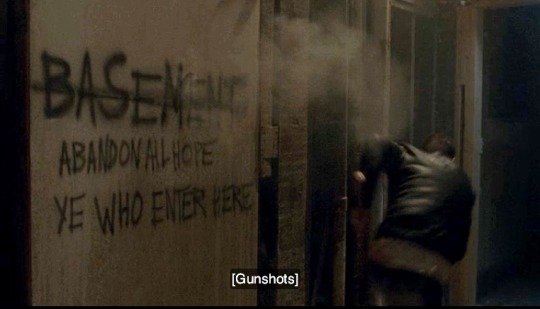
I decided to divide this into 2 parts because it’s very long. Today, I’ll summarize the Divine Comedy itself and talk about how seasons of TWD might correspond to the different circles of hell. Tomorrow, I’ll talk about Still and the “Abandon all Hope” sign. Here we go:
THE DIVINE COMEDY: A BREAKDOWN
The story starts on Good Friday and ends on Easter. Obviously, that's a good sign.
We start with Dante who is lost in the dark wood. Above him, the sun shines on a mountain peak and he attempts to climb it to get to where the sun is, but his path is blocked by a leopard, a lion, and a shewolf. (Yes, I'm side eyeing the she-wolf thing as well.)
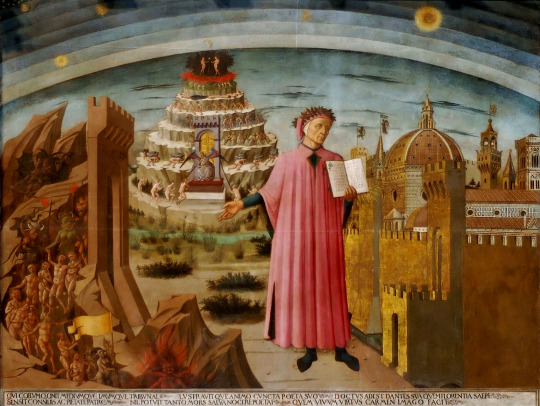
Discouraged that he can't get to where the sun is, Dante returns to the dark wood. He sees the ghost of the poet Virgil, who says Dante's path must take him through Hell but Virgil will guide him and eventually he will reach his beloved, Beatrice. He also tells Dante that Beatrice, who is deceased, and two other holy women are the ones who sent Virgil to him. They knew of his plight and took pity on him. (I really think this is probably the tie to the three Marys.)
So, they head into Hell. This is where we get the sign, "Abandon all hope, ye who enter here."
The first region that Dante enters is actually the anti-inferno. It's what you might call the antechamber or waiting room of hell. There are still people there, though. Those who couldn't commit to good or evil, fence-sitters who wouldn’t make a choice. They chase a blank banner while hornets bite them and worms lap up their blood.
To actually get to the gate of hell, Dante and Virgil have to go across the river. They do and then they reach the first circle of hell, which is called Limbo. Here, there are pagans. Those who never knew Christ.
The second circle is for those who committed the sin of lust. They swirl about in a terrible storm. The third circle is for the gluttonous. They lie in the mud and endure a rain of excrement.
The Fourth Circuit is for the avaricious and the prodigal. They charge at one another with giant boulders. I was a little confused by why the prodigal would be here. In the Bible, the prodigal isn't generally regarded as a crime or sin. But reading further, the prodigal son did waste the resources that his father gave him before returning to his father and asking for forgiveness. So, these are people who are wasteful in a really bad way. Apparently, they charge at one another around a semi-circle, smack into each other, turn around to go the other way, and repeat it all again.
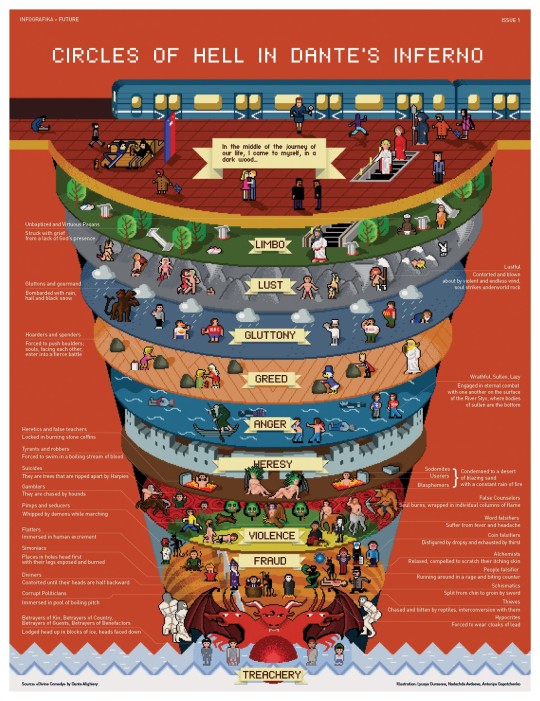
In the fifth circle are the wrathful. The struggle with each other in the river Styx which is a swampy and fetid cesspool. The Sullen are also there, and they lie beneath the water, choking on the mud.
The sixth circle is for the heretics. The circle is populated by tombs which are surrounded by flames.
The seventh circle has three rings and houses the violent. The first ring is for people who are violent toward others. They spend eternity in a river of boiling blood. The second ring is for those violent toward themselves (suicides). This is kinda interesting. They endure eternity in the form of trees. (I don’t think TWD uses the trees as suicides, necessarily, but maybe more for people who inadvertently caused their own deaths through their actions. I was thinking about Deanna saying of Pete, “Let the trees have him.” Which suggests she’s consigning him to hell. Just a thought.) The third ring is for those violent toward God (blasphemers) violent toward nature (sodomites) and violent toward art (usurers).
The eighth circle is full of evil pockets of people. There are 10 pockets. I opted not to go through them all here because, at least for now, I don’t think they’re relevant. Just ten types of sinners such as flatterers, thieves, people who took bribes, etc.
Finally, the Ninth Circle. In order to reach it, they descend into a well that leads to a frozen lake. In the first ring are those who betrayed their kin and they are standing up to their necks in the frozen lake. The second ring holds those who betrayed their country, and they are standing up to their heads in a frozen lake. In the third ring are those who have betrayed their guests. They lie on their backs with only their faces sticking out of the water. The fourth week ring is for those who have betrayed their benefactors and they are completely submerged.
At the center of this ring is a shrouded, gigantic form which is Lucifer. He has three mouths that are chewing on three sinners: Judas Iscariot, Cassius and Brutus. Those who famously betrayed their masters.
Dante and Virgil climb down Satan's clothing to get to the very bottom of the 9th circle of hell. Interestingly, Dante is carried on Virgil's back. So, we have a serious piggyback going on here.
After they climb down Satan, they cross the river Lethe and emerge from hell on Easter morning before sunrise.
HOW IT MAY CORRESPOND TO TWD:
Okay, so that’s a very broad synopsis of TDC.
Let's talk about a few different ways we can possibly interpret this. First off, my very general theory is that (and we’ve said things similar to this before) that the post-apocalyptic world = hell and in a sense all our characters are Dante. Which means the walkers in this analogy represent the souls who are already in hell. Think of it this way. In the story, Dante is a living person that has to pass through hell. In fact, in many of the circles, the gate keepers and such try to keep him from passing because he’s still alive. But he always gets special permission to do so. So, it’s a “being alive among the dead” sort of theme. The dead, of course, being the walkers.
And the reason that’s important is because some of how we can interpret this is based on how walkers are portrayed throughout different seasons. Let me also say that this is a very loose interpretation and I’m by no means positive I’m interpreting this right. Some of this is hard to nail down.
So, I tried to make different seasons and arcs of the TWD story fit the different circles of hell. For example, I would say this analogy really starts in S4, because I think it's purposefully placed and wouldn't have begun heavily until Gimple took over. So, I think all of S4 was the anti-inferno or antechamber before they got to hell. In the same way that S4 foreshadowed many coming arcs, this was just a little bit beforehand.
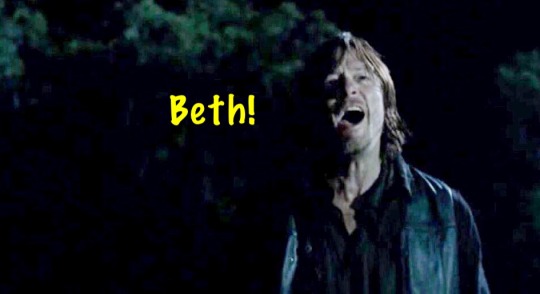
Crossing into hell would be Beth and Daryl's separation. I was thinking that the first circle, Limbo, which is described as housing those who never knew Christ, might be Terminus. (Beth is the Christ figure and she never made it to Terminus.) The second circle is for those who lust and they walk about in a terrible storm. I thought of 5x10 and the storm they went through there. The third circle is for the gluttonous. This one stumped me a little bit. Its still rain and a storm, but it talked more about mud and people being blown around in the storm. So, it could be part of 5x10, but I also thought of the big storm they had in FTWD S5. I'm not sure about that one.
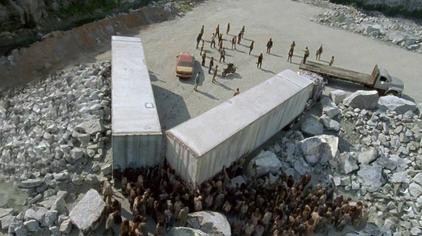
The fifth circle talks about people running at one another with huge boulders. I thought of the rock quarry in S6.
Total side note: I was looking for a picture of the rock quarry to put in here, and I came across this pic below. Quint means 5, and then of course it actually says “Gate 5.” I’ve always thought this pointed back to S5, to show that Glenn’s death fake-out is a template of Beth. But this may also point to this being a symbolic representation of the 5th circle of hell. Just saying. ;D
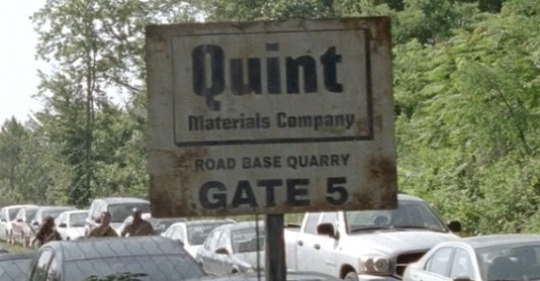
Then there's the sixth circle. It talks about people struggling with each other in the river Styx and it swampy and fetid. The thing that came to mind here is the swamp walkers in S8. This was when Tara was still trying to kill Dwight and Daryl and co took all the kids away from Alexandria and to Hilltop. Remember, they made a big deal about swamp walkers? So I wondered if this could be in line with that in season eight. The walkers show what circle of hell therein.
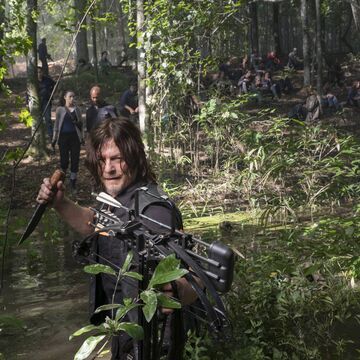
Another tier of the sixth circle is tombs surrounded by flames. I think the thing that embodies that more than anything else we've seen would be the Whisperers. We saw the burning of Hilltop and the Whispers represent death anyway. I could see Alpha representing a heretic in various ways, not least because they pretend to be walkers when they’re not.
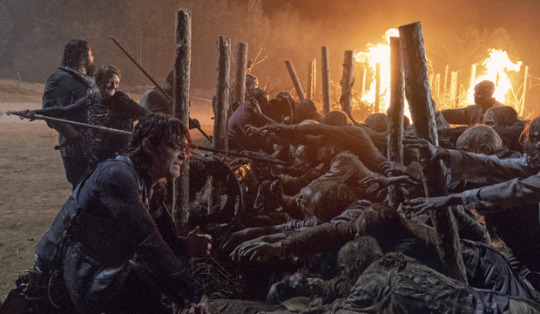
What I’ve said so far is what I discovered and got super excited about a few weeks ago when I first started doing this. Because it told me that by using this template, we might be able to get an idea of when Beth would return.
But you can probably see the first problem I ran into. If we’re only at the sixth circle, we still have three more circles before Beth returns, right? (Assuming that she returns at the end of this and Dante emerging from hell on Easter will signal Beth and Daryl reuniting.) But I don’t think it will be three more seasons or whatever until we see her. Truly.
So, I kinda got stumped because even reading through the seventh, eighth and ninth circles, nothing was jumping out at me that suggests we’ve seen the events corresponding to those circles, yet. I'm sure we could find some way to compare them to events in the story, but just nothing really obvious stood out.
But don't despair yet. I was originally a little unsure about this, but I started looking at the actual events of Still, it made me feel much better. I think I understand now why it's laid out this way.
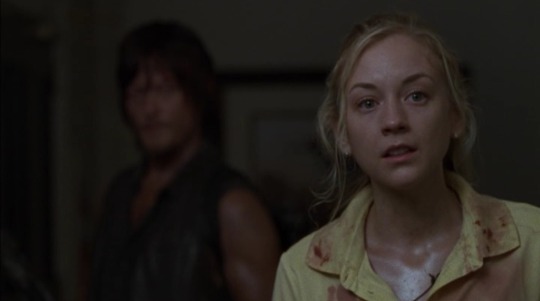
So once again, come back tomorrow and we’ll talk about Still, and then about Rick, and maybe about the chess theory. Stay tuned!
#beth greene beth greene lives#beth is alive#beth is coming#td theory#td theories#team delusional#team defiance#beth is almost here#bethyl
11 notes
·
View notes
Text
shay’s favorite tv shows from 2017
this has been in my drafts for.... nine months.... fuck.
Written in December 2017, updates are from September 2018.
Considering how many new, innovative shows are around these days, I didn’t get too adventurous this year, but I’m satisfied with the ones I did watch. I discovered new shows, I was impressed by the shows I’ve been following for years, and I learned to appreciate the work that goes into television more. Here’s my top ten TV shows..
10. Thirteen Reasons Why - In all honestly, this is only here because I haven’t been able to watch Peaky Blinders yet, and it’s probably too late. (UPDATE: Watched it in Jan and it was amazing.) This show received a lot of backlash, and for good reason, although it had its moments. The characters were well-written, the relationships were given depth that is often lacking in other high school-set narratives, and the tone was great. I’ve always loved watching things that make me profoundly sad, and this show did just that. (UPDATE: Season 2 was fucking garbage lmao.)
Standout episode: Tape 1, Side B. It’s a cripplingly depressing show, but this episode stood out as a moment of light in Hannah’s dark reality. Her friendship with Jessica and Alex was nice in the beginning - their banter, them having a spot in the coffee shop. I remember assuming Alex was gay (I believe his actor is, so I wasn’t too off) and thinking that’d be good for Hannah, to have a guy friend who wasn’t interested in her and wouldn’t add relationship drama to her life. Boy, was I wrong. Still, having seen the show at the beginning of the year, this episode is the only one I remember as enjoying, so it gets this spot.
9. A Series of Unfortunate Events - I read the books in elementary school, and they’re one of my favorite series of all time. I’m also a huge fan of the film, though I know most aren’t. So I was very excited for this series, and it didn’t completely disappoint. While I found myself longing for the actors from the 2004 motion picture, and some of the directing decisions weren’t choice, it was cool to see The Miserable Mill finally come to life, and I loved the Baudelaires just as much here as anyone else. I’ll be tuning in to next season, since I’ve very, very excited to see how they handle the next three books. I can’t wait to meet the Quagmire triplets, and Esme, and Jacques! It’ll be awesome. I hope they portray it well, but there’s no film to compare it to from here on out, so maybe it’ll be different.
Standout episode: The Reptile Room: Part One/Two. Like I said, I wasn’t a huge fan of how most of the characters were portrayed in this adaption, but I did love Uncle Monty. He was just as wonderful as he was in the film and books. Watching his interactions with the kids was really nice, and as always, made me wish they could’ve remained with him. Stephano wasn’t as menacing here as he is in the film (that knife scene is the point in the film where you go, “woah, this dude’s for real. he’s scary”), which was a bummer because I still thought Olaf was a laughably bad and incompetent villain by the finale, but I did like Poe’s hysteria, and I really loved the movie theatre scene.
8. Riverdale - Oops I never wrote this dfdsbfjdbfjds.
7. South Park - While we all can agree the last season was a mess, and this one was only a slight improvement, it did have it’s moments. I’ve been a fan for five years now, so at this point, they’ll never disappoint me, tbfh.
Standout episode: Doubling Down. While Put it Down was wonderful, both satirically and because of Craig and Tweek’s adorable relationship, the eighth episode of the season was my personal favorite (UPDATE: Not sure why ‘cause I didn’t specify then and I’m not sure now.)
6. Dear White People - I didn’t do this one either damn.
Standout Episode: Chapter V. While the show is a comedic take on racial relations, this episode is an emotional, serious change. The Barry Jenkins-directed episode shows us that the subject is no laughing matter, and it very clearly deserves this spot.
5. Rick and Morty - Yet another show I discovered this year, during the summer. I’d been meaning to watch it for ages, and I finally got around to it. While the fanbase is pretty much poison, the show is pretty damn good. Maybe not what it’s hyped up to be, but great none-the-less. I’m a big fan of adult cartoons, and RaM isn’t entirely satirical like South Park, and it’s not self-aware like BoJack, but it holds up. It’s probably so popular because of how unique it is.
Standout episode: The Ricklantis Mixup. While my personal favorite of Season 3 was The Whirly Dirly Conspiracy, because I adore Jerry, I think we can all agree that the was the best episode of the season, if not the series. Like, really. Holy shit.
4. Gotham - I began watching this show last year, and caught up to season three around halfway through it. It began to drag a bit, admittedly, like it couldn’t carry it’s own weight - but now the show’s on season four, and it gets a little wild sometimes, but it’s holding quite a bit better, I’d say. I was pretty fucking impressed, especially with the Nygmobblepot stuff.
Standout episode: A Dark Knight: Queen Takes Knight. Although Mad City: The Gentle Art of Making Enemies from Season 3 is a close runner-up, for all the loose ends it ties up, and so cleanly, too - the winter finale gets this spot. It had me on the edge of my metaphorical seat (since I was actually curled up in bed) the entire time. While Sophia’s character and her motivations had remained muddy since her introduction, her badassery finally came to the forefront, and it was awesome. The way she tore down Penguin from his throne? Incredible. We know he’ll return, as he has so many times, but really, that was so incredible. Considering he’s my favorite character, I should feel worse. However, Sophia executed her plan so well, I was too awed to hate her. Also, Jerome’s back! I’m extremely excited to see Jerome’s role in the upcoming episodes. (Update: Oh, honey, you got a big storm coming...)
3. BoJack Horseman - I binged the hell out of this show just before season four came out, because it was so creative and thought-provoking and hilariously depressing. The fourth season was notably wonderful in a lot of ways, particularly because of Todd’s sexuality arc (the first out asexual character in a TV show!) and how well it was handled, but also because of the mature themes they took on. Princess Carolyn’s miscarriages, Diane and Mr. PB’s failing marriage, BoJack’s struggle to forgive his mother, Beatrice’s own troubled upbringing, Hollyhock’s eating disorder. I watched the whole season in three days when it was first released, four months ago, and I’m currently considering re-watching it after rereading the summaries of each episode to refresh my memory. I’d forgotten how phenomenal it was. It’s on another level - it really is.
Standout episode: Time’s Arrow. Though there wasn’t a single weak episode this season, this one definitely stood out. Following the tradition of uniquely depressing eleventh episodes, Time’s Arrow focuses on BoJack’s mother and how her turbulent childhood affected her. Gorgeously executed, it makes us pity the woman who made our favorite alcoholic horse the way he is, and it concludes with BoJack making peace with his mother, who he had spent so long resenting. It’s just a gorgeous episode. I think I’m going to rewatch it right now, haha.
2. Mr. Robot - I’ve wanted to watch this show since it came out, but I finally began and finished the first two seasons just weeks before Season 3 came out. Since I’m discussing my favorites of 2017, I won’t be talking about those first two seasons here. I’ll be focusing on Season 3, which has been, in my opinion, incredible. What began as a modern, nerdy take on Fight Club has become so much more; a masterfully dark and suspenseful fictionalized look at the looming political state of our world. We’ve gotten new characters (Irving, who’s a gem), we’ve learned more about older but mysterious characters (poor repressed Dom), we’ve had to say goodbye to old characters (I’m still mad about ******), and best of all, this season has been Tyrell heavy, and we even got to see Elliot make peace with Mr. Robot.
Standout episode: S3/EP8, eps3.7_dont-delete-me.ko - The previous episode had already established a gorgeously melancholy setting through the use of Mac Quayle's gorgeous production 2.0_6-madame3xecutioner.oga, which, as a huge fan of film scores, I instantly fell in love with. The song is featured during a scene I watched several times - the scene when Angela repeatedly rewinds the explosion, unable to cope with the reality of it. It left me feeling similar to the way I had after watching American Beauty for the first time - like the world was a different shade. I thought this would be the only moment the show could invoke that response from me, but then the next episode came out. Unlike Ep. 7, Ep. 8 didn’t have a single moment. The whole episode brimmed with pain and sadness. The show’s already sad, but the lonely, isolated feeling is often overwhelmed by the suspense, drama, and excitement. This episode let the characters hurt without interruption, and it was wonderfully emotional.
1. The Get Down - I was so thrilled when I discovered this show in April, literally a few days after Part 2 had aired. I downloaded all the episodes for a road trip, and literally could not put it down the entire tme. It blended all my favorite things - the art of rap, the origin and evolution of hip hop, how battle rapping/deejaying came to be. The music was stellar, the cinematography was breathtaking, the acting was (for the most part) wonderful, and the cast was fantastic. I’ve seen some criticizing it, because of its occasionally choppy narrative and the fact that Baz Luhrmann added his usual whimsical take on something that was historically fairly dark, but I thought it was flawless. It was definitely groundbreaking in its amount of representation, and it was fun and colorful and emotional and, overall, just absolutely wonderful. Like many others, I was pretty devastated when they cancelled it. I understand why, but I wish it could get the Sense 8 treatment and receive a movie. There’s too many loose ends - it’s a real bummer. Still, I’m grateful we were blessed with this gem of a show at all.
Standout episode: S1/EP11, Only from Exile Can We Come Home - The final episode gets this spot for a single scene; the one where it alternates between Mylene singing “I’m my #1″ in the hotel room with Jackie and all the drag queens, and the scene where an unreleased Miguel song is playing while Dizzy & Thor paint on each other, and then Shao calls Dizzy his “alien brother.” That scene was easily one of my favorites I’ve ever seen in any show, in my entire life. If that episode was a film, that scene alone would guarantee it a spot on my favorite films list. It was that good.
1 note
·
View note
Link
A Sherlock Holmes series that doesn't focus on Sherlock Holmes? Netflix's The Irregulars may be the latest adaptation of the famous super-sleuth created by Sir Arthur Conan Doyle, but in it he plays second fiddle to the Irregulars, a street gang of young adults with colorful pasts who have skills solving crime. Based on the Baker Street Irregulars, who featured in just a handful of Conan Doyle's stories, the group becomes Holmes and Watson's eyes and ears around a Victorian London bedeviled by supernatural situations.
RELATED: Enola Holmes - 5 Ways It's Similar To Sherlock (& 5 It's Like Robert Downey Jr's Sherlock Holmes)
Holmes is definitely an important character in the series, but he serves as part of its framework to allow the Irregulars to stand on their own. For some Holmes fans there won't be enough of the consulting detective, but for others, the Irregulars will be the vastly more fascinating protagonists.
10 Better: Stands On Its Own
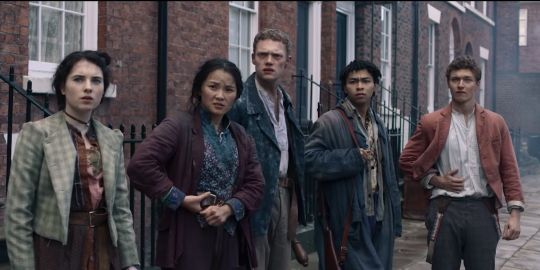
In the absence of the famous consulting detective, the series is able to stand apart from his narrative, its stories not eclipsed by the reputation of his own escapades. It can be known apart from everything to do with Holmes, from his scrimshaw pipe to his opium addiction.
By distancing itself from Holmes it can form its own identity, especially given that the Baker Street Irregulars don't feature in more than a handful of Holmes stories (two novels and one short story, to be exact).
9 Needs More: Too Confusing
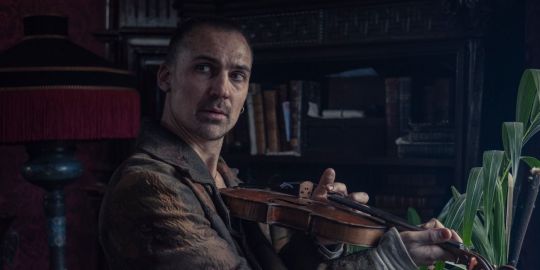
The Irregulars aren't professionally contracted by Holmes himself but his associate John Watson. In Sir Arthur Conan Doyle's novels, Holmes is world-famous, the stories Watson pens being widely circulated, so for Bea and the others to have no idea the significance of his name when mentioned by either Watson or Mycroft Holmes is extremely strange.
RELATED: Sherlock - Every Book Case Referenced By The BBC Show
The gang first encounters Holmes when Spike sneaks into his room at 221B Baker Street and a drunken figure flops down on the bed he's hiding under. Longtime fans know it's Holmes because he immediately begins to play his violin, but casual fans are left simply confused. Since his character isn't a consulting detective anymore, his presence proves more often a burden to the gang than a help.
8 Better: More Creative Freedom And Perspective
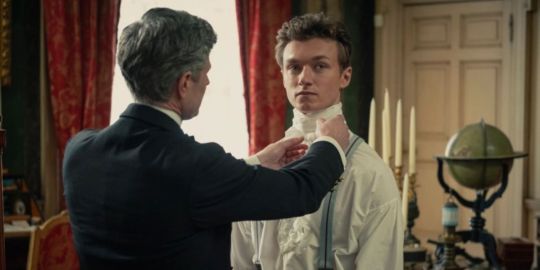
Holmes' adventures have been well-documented according to Sir Arthur Conan Doyle's fictional narrator and Holmes' biographer, John Watson. With The Irregulars choosing to base their cases on narratives apart from the structure of Watson's writings, they have more creative license to pursue stories that don't intersect with his. They can even, in the case of Leopold, interpret real historical figures in a creative way.
As an added bonus, they aren't confined to the environs of Holmes' socio-economic status. That is to say, the gentlemen's clubs, the parlors of the extremely wealthy, and wherever else a man of Holmes' means would frequent. Their perspective is as impoverished, resourceful people of the street, something Holmes knew very little about (unless he was undercover himself, but even then could only mimic).
7 Needs More: More Structure
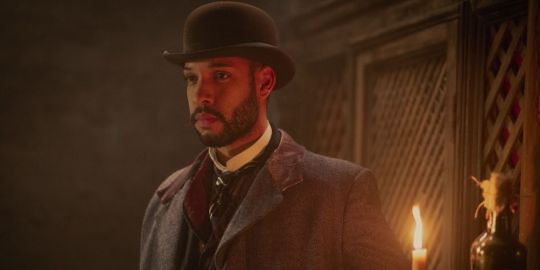
With a defining protagonist like Sherlock Holmes, cases take on a specific structure in accordance to the short stories presented by John Watson. He's approached by a client, he decides whether or not to take the case based on a combination of financial need and personal intellectual interest, then proceeds to solve it.
RELATED: Henry Cavill And 9 Best Actors Who Have Played Sherlock Holmes
Without the mechanics of that dependable system, the series is a little chaotic, with it being somewhat unclear why the Irregulars are in any way important. Other than their clairvoyant member Jessica, none of them seem to be of particular use to their clients.
6 Better: More Room For Interesting Characters
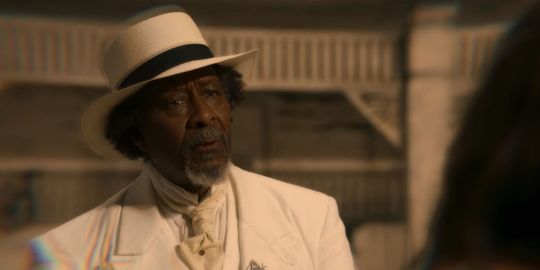
While a remarkable figure in his own right (not to mention the prevailing basis for many popular characters, including Doctor Gregory House of House), less of Holmes means more of the Irregulars, with their eccentricities and personalities being given full attention.
This also includes more time focused on his older brother Mycroft Holmes (who only features in a handful of the Holmes canon), John Watson, Mrs. Hudson, as well as supernatural figures like the Linen Man and entities drifting around Victorian London at the time.
5 Needs More: He's A Fascinating Protagonist
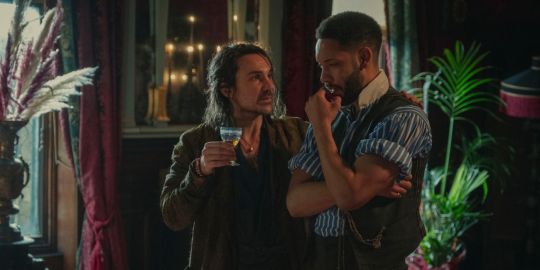
There's a reason that Sherlock Holmes stories have remained popular for more than 100 years and have never been out of print; he's a remarkable character and a fascinating protagonist. He's routinely selected as the most famous character in all of literature, and adventures have been translated into dozens of languages around the world.
While there have been two excellent series featuring the character (Sherlock and Elementary), they've both placed the world's greatest consulting detective in the modern era, whereas it's been decades since he's been allowed to flourish in the historical period in which he was written.
4 Better: He Has His Own Media
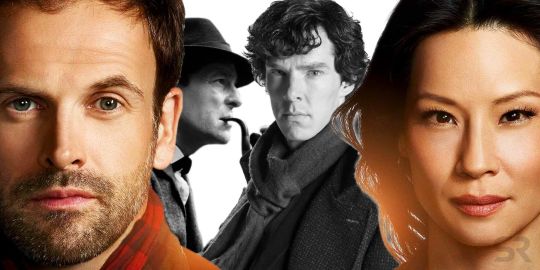
Given the popularity of Sherlock Holmes as a character, he's recently seen somewhat of a resurgence in the current zeitgeist. Aside from the successful Sherlock Holmes films starring Robert Downey Jr. as Sherlock Holmes and Jude Law as Dr. Watson, he's also appeared in series like Sherlock with Benedict Cumberbatch and Elementary with Jonny Lee Miller.
RELATED: Robert Downey Jr.'s Sherlock Holmes 3 - 5 Stories It Could Adapt (& 5 Ways It Can Follow On From A Game Of Shadows)
With a third movie starring Robert Downey Jr. currently in production, it's perhaps a better time to highlight the characters that dwell in Holmes' world, like the Irregulars. Holmes media will keep being made, but a series based on his Baker Street brood may only have this one chance to gain traction.
3 Needs More: Adds Legitimacy
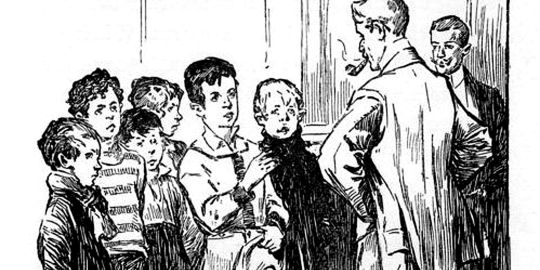
As the series struggles to find its footing, having a much-beloved literary character like Sherlock Holmes might help it find its footing. Much like Krypton without Superman, it may divide its fanbase if it doesn't keep finding ways to connect to its inspirational source material.
In other words, for The Irregulars to be taken seriously as a show, it may need -at least for the foreseeable future- more tie-ins to Holmes in order to gain a suitable foundation.
2 Better: More Diversity
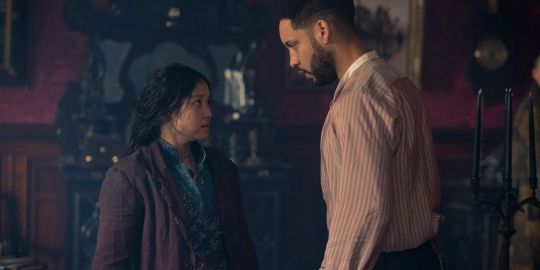
The television landscape may not need another white male protagonist with wealth, social standing, and superior powers of observation. Without Holmes, characters like Beatrice (played by Chinese-born Northern Irish actress Thaddea Graham) can have the spotlight as the leader of the group of crime fighters.
There are also more female characters in general than in a typical Holmes story, and they are of greater importance to the plot. John Watson has also been changed in significant ways, making Holmes seem less relevant by what he represents.
1 Needs More: Chance For Another Interpretation
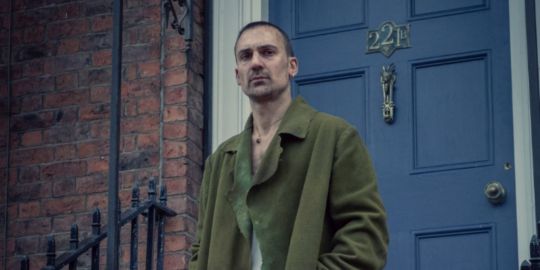
Given the recent success of Enola Holmes in which Henry Cavill unexpectedly portrayed Holmes as a soft-spoken and physically robust sleuth, there's been cause among fans to desire a different interpretation of the character in new media.
This Holmes is an occult-loving, top-knot-wearing, rakish Bohemian alongside a Watson that has much more in common with the traditional Holmes archetype. The Irregulars featuring more of Sherlock Holmes would allow for yet another unconventional depiction to be celebrated.
NEXT: 5 Reasons Henry Cavill Should Have His Own Sherlock Series (& 5 He Shouldn't)
The Irregulars: 5 Ways It's Better With Less Sherlock Holmes (& 5 Reasons It Needs More) from https://ift.tt/3wrcS6z
1 note
·
View note
Note
Do you think there was a chance MM/H were lying because they knew the BRF wouldn’t respond to each accusation? I personally thought they were reaching on several points in the interview.
ok, so, i haven’t seen the interview in full. i’ve seen clips of it, and i’ve read a summary post that summarised everything that was said and also i’ve seen so many people talking about it.
i just want to say that i stand with megan in her grief of her miscarriage, and stand by the fact that they should have supported her through that and through her suicidal tendencies and urges. i can also clarify that the british press are inherently racist (but that didn’t start with meghan markle, nor does it end with her) and they targeted her as they have done with other women in the past, and still continue to do. for example, look at how they targeted and demonised caroline flack (rip💛), and what they’ve done to molly-mae hague.
i don’t particularly think they were straight up lying about what they said, but i do think there were some careful words chosen and some extended truths and exaggerations. meghan and harry can paint themselves out as angels and victims all they like, and similarly the royal family can paint them as the devils reincarnated and demonise them all they like, but that doesn’t take away from the fact that likely neither side that has been portrayed is the whole truth. there’s harry and meghan’s side of events, the royal family’s version of events, and then the truth. i, personally, believe it’s six of one and half a dozen of the other — reactions and retaliations on both sides.
i do believe that they were reaching on a few select points that they made, perhaps because the american audience wouldn’t/don’t understand the protocols or the reasoning behind such decisions as much as the british public would have if the interview has been specifically aimed and aired for a british audience, such as:
— saying that archie’s titles have been taken away from him: there is a doctrine stating that only children and grandchildren of the queen are given titles. archie is the queen’s great grandchild, meaning that when she either abdicates (which is said to be likely if phillip dies) or she passes, and the crown is given to charles, archie will then receive titles and the same goes for their second baby. that cannot be mistaken, harry himself would know that and i’m sure it would have been explained to meghan herself as it is royal protocol.
— saying that they have been cut off financially from the royal family and had to rely on the inheritance harry received from diana: first and for most, the senior members of the royal family (i.e the working royals) are predominantly funded by the taxes of british public. harry and meghan are no longer working royals, nor do they reside in the uk, so the british public shouldn’t have to fund them? i’m against funding the monarchy as a whole and can think of a million other things that the money could be better spent on, but especially not two members of the royal family that “aren’t royals anymore”. it’s a huge portion of tax payers money that wouldn’t be returned to the uk economy because they predominantly reside in the us, and the fact that our economy is already struggling as it is, it’s a huge deficit to have to deal with. also, it’s not strictly true. charles owns the duchy of cornwall estate, which he gives both william and harry a personal supplementary every year from that fund. so he continues to receive that.
— they were denied protection: protection is funded by the state from the british public’s taxes, and for that reason protection is only funded for those so far down the line of succession. i don’t know how far that is, but i don’t think it extends so far as beatrice and eugenie. if you’re not a working, or senior, royal you’re not afforded protection and have to fund it themselves. harry and meghan aren’t working royals, so are therefore not afforded protection. again, why should the british public fund their protection when they don’t reside in the uk and the money would go to a us firm — again leaving a deficit in the uk economy? they knew that leaving would mean that they have to sustain themselves financially, and wouldn’t be afforded any of the luxuries, and that included protection. going it by themselves means going it by themselves and that’s a choice they made — regardless of why they made that choice.
0 notes
Text
EP1 reread notes
So, I'm done with my reread of the first episode of Umineko! I'll probably write up a more detailed post for general thoughts on the episode as a whole later, but for now I'm just dumping these rough stream-of-consciousness notes here. These were mostly jotted down pretty hastily in the middle of reading, and I didn't start taking notes until quite a way into the episode, but it covers some little points that struck me throughout. (They also unavoidably got more detailed and comprehensive as I got further in, because I'm apparently incapable of staying concise for the life of me.)
* Krauss managing to turn the situation around during the adults' discussion is kind of impressive, and it's funny how he always ends up the underdog in subsequent episodes. The whole discussion is incredibly intense even after like 5 rereads...Especially the part where Krauss sort of gloatingly parrots the adults' mockery of him at the end. "Sorry, since I'm such a useless and incompetent loser, I don't have the money to be able to help you!" God damn.
* Kyrie being so incredibly passive and quiet during the adults' discussion is also weird given how later episodes go, but I sort of like the interpretation that Yasu didn't know what to do with her on account of barely knowing anything about her, while Tohya gave her more active involvement based on his memory of how things actually went.
* Kinzo's talking about his miracle really was incredibly telling in retrospect? The desired outcome wasn't for no one to solve it, but it wasn't for any of the adults to solve it either, so the only explanation can be that he wanted a specific person to become his heir. And it stands to reason that the person he's telling all this to - Kanon - might be that person, right?
* In general I like the way Kinzo and Yasu both made their own bets using the epitaph for different purposes and how they both get conflated and run together through the fantasy scenes. From an authorial perspective, Yasu choosing to prsesent insight into her own mindset in making a desperate bet with fate through Kinzo, while still portraying Kinzo as himself as well, is interesting. In general I like how the other characters are used to represent the themes that tie into Yasu's story without detracting from their own individuality as characters either, e.g. Evatrice in EP3, Maria & Ange in EP4, etc. Their stories are obviously used to illuminate the nature of Yasu's magic but their approaches to it are also really different and individual to them as well.
* I am struck this time by how clever Yasu's use of the fantasy narrative in general is. During the scenes that do "take place", Shannon and Kanon show interesting sides of Yasu's actual reactions, but then in the fantasy scenes that aren't taking place, they work differently. Kanon and Genji talking about Beatrice, and Kanon's wariness of the witch and reluctant resignation to having to go along with her ceremony are all part of a completely fictional narrative, but Kanon's reactions in that narrative are still telling for his "character", and what Yasu wants to represent about that side of herself. Kanon is a developed character of his own in Yasu's story, and I like that.
* I do really like Krauss and Natsuhi's relationship; the miscommunication on both sides feels real. From Natsuhi's PoV, hiding the gold's existence from her was a betrayal, but from Krauss's PoV it wasn't really intended that way; Natsuhi wants to be respected and seen as an equal above all else, because of her insecurities about not really being a full Ushiromiya despite all the effort she's gone to to put her old family name behind her and devote herself to the Ushiromiya family - but Krauss sees himself as having failed as a man if he burdens Natsuhi with his problems and wants to try to do everything himself, not because of any real disdain for her but more because of how it ties into his own insecurities about not living up to Kinzo's ideals of how the successor to the head should be, and wanting to prove himself in that way. Neither can really understand the other's perspective at all, though, so it keeps happening. I love her relationship with Jessica for similar reasons. It's easy to sympathise with Jessica's frustration with her mother and her strict upbringing, but it's also easy to sympathise with Natsuhi wanting her to be as best prepared as she possibly can to succeed in the difficult environment of the Ushiromiya family, and her frustration at Jessica's rejection of all that. The whole family dynamic is really believable and sad.
* Shannon and Kanon's scene in the guesthouse servant room makes me sad...Kanon mentioning that he tries not to get close to people because he knows he's not really a person, and deriding Shannon for making that mistake, ow. At the part where Genji points out that he could go play with the cousins himself, reassuring him that they would have invited him too if he'd been there instead of Shannon...part of me kind of takes that as him wanting to encourage Yasu to try interacting with other people more as Kanon, to see if it makes her any happier.
* Cute how they changed "Renon" to "Lenon" to emphasise the Leviathan connection.
* I have a lot to say about George and Shannon... (I ended up making this into a separate post here)
* The scene with Kinzo validating Natsuhi really is extremely sad when you understand that it's basically Natsuhi imagining to herself that Kinzo might have secretly acknowledged and appreciated her efforts in that way, knowing - as said in red by Bern in EP5 - that he obviously never actually did. At the same time though, it's obvious that her imagining and believing in those possibilities genuinely gave her strength and she probably wouldn't have been able to get by without those beliefs, and that's what allows her to be such a pillar of strength and support for the kids throughout this whole episode. It's a pretty clear demonstration of the two conflicting sides of that "power of magic" that Umineko is all about exploring.
* I don't have much to say about the discovery of the crime and such that hasn't been said already, but I do think it's interesting how Hideyoshi is visibly shaken by the whole thing - his repeated frantic questions to Nanjo are obviously partly coming from a place of "That wasn't real, right? Right?" and he also obviously feels legitimately horrible about George's reaction to his lie about Shannon. But Eva's attitude really is completely detached and out of place, really shrugging off the whole thing. It sort of reminds me of how she shrugged off Rosa's death in the EP7 TP. I don't think she actually consciously thinks the murders are real, but I also think she also deep down really doesn't give a crap if they're dead or not - and even though she loves George, she can't give a crap about his love for Shannon, because she never saw that as real either.
* Eva's comparing Battler to Rudolf is true in some ways, honestly.
* The issue of "why would the culprit draw attention to their crime and the fact that only a servant could have done it?" is a big one, really. Battler goes so far here as to say that the very fact that the crime was committed in a way that made it "obvious" that only a servant could do it is exactly what makes a servant culprit theory impossible, and I think that's what caused a lot of people (myself included) to block out those theories as a possibility as well. It really comes down to no one really thinking that the culprit might have WANTED to be caught - even though that's really what everything about their actions points to, in retrospect. Eva and Battler both repeatedly stress that the culprit's actions are weird and impractical and sabtoage their own goals, but Battler doesn't make the logical connection to why that would be. The existence of the "special clause" in Beato's letter itself is huge, and it's interesting, again, how Battler and co try to reason it out - "maybe the culprit is only killing people because they want us to solve the epitaph?" - but then dismiss that because it doesn't make sense, and never really come to a satisfactory explanation.
* I think the fandom often didn't really put a lot of thought into the culprit's motives, either; there was probably an assumption that they'd be spelled out later, that the mechanics were the part they should be figuring out...I think what Battler says in EP7 about the expectations the mystery genre sets up is honestly pretty true.

* MARIA BEING FIERCELY PROTECTIVE OF BEATO MAKES ME SO HAPPY
* Man, George really does like that "chick breaking out of its shell" analogy, using it here to describe Maria just like he did before with Shannon. I think it's pretty telling about how he sees his own journey and his own struggle to break out of Eva's control and move from being a "child" to an "adult", personally...It's also pretty telling of how he views Shannon as a child as well, though.
* "Aniki, I can't believe you're single...You sound like you've already raised kids through middle school" UM BATTLER YOU KNOW HE WAS NOT SINGLE UNTIL HIS FIANCEE JUST DIED HORRIBLY A FEW HOURS AGO RIGHT
* It's funny how the argument over the receipt is basically exactly the same, point for point, between EP1 and EP5.
* Eva must have been so goddamn mad when Battler stole the show from her attempt to corner Natsuhi and turned everyone's opinion around with a ridiculous theory about Kinzo hiding under his bed. I love it.
* The really messed up part is that Eva doesn't even actually gain anything out of pressuring Natsuhi here. She doesn't need to expose Kinzo's death to blackmail Krauss, since she's already going to get a share of the gold from Yasu. It's pretty much pure spite. There's a reason she only impulsively placed the receipt right after Natsuhi managed to maintain her dignity in the face of Eva's goading and made her look bad after leaving Kinzo's study the first time.
* Battler to Eva: "To me, you're an awesome aunt who's always fun and playful." BATTLER......
* Yasu presenting Kanon as constantly thinking after Shannon's death about how she did everything better than he did is pretty sad, all things considered...Shannon is miserable and dissatisfied, but at least she’s confident in her ability to function; she's stable and secure. Living as Kanon, on the other hand, would be a leap into the unknown, and that's really scary...
* I love Eva a lot. The scene with her and Hideyoshi in their room is a side of her character we don't see often, but it's really important. Her being so self-aware about having let her life be guided by her childish resentment of Krauss is really striking, especially since...the way she describes it, it kind of seems like she'd managed to let go, for a time, having given up and accepted that Krauss would be the head and it didn't have anything to do with her any more? But then the idea about how maybe she could get Kinzo to keep her in the family if she could produce an heir before Krauss got into her head, and she made her whole life revolve around that hope of gaining Kinzo's validation once again, through George. So her asking Hideyoshi to "take her back to that time when they were newlyweds" is really sad in that light. It's easy to tie to the struggle between her "adult self" and "EVA-Beatrice" in EP3 as well...
* The part where Kanon is in a really frantic hurry to get to Eva's room and cut the chain while Genji goes to fetch Natsuhi, so much so that Kumasawa is out of breath following him, is interesting. In retrospect, since he would actually have already cut the chain (to get in there to murder the victims) before going back there with Kumasawa to "discover" them, it would be really bad for him if Genji and Natsuhi arrived back there before him and Natsuhi saw that the chain had already been cut before he arrived. He needs to be the first one on scene for the story that he just cut the chain to hold up, thus forming the illusion of the closed room.
* Aaah, Maria tries to comfort Battler and quietly says "Battler, don't cry, don't cry" after he starts sobbing when he sees Eva and Hideyoshi's bodies...It's such a different reaction to how she mockingly dismissed everyone's grief over the first deaths, but actually seeing Battler completely undone like this at the moment of discovery obviously gives her more of a shock and disturbs her. She didn't get to see that with the first victims, so it didn't penetrate as hard. But of course, after the shock has worn off and Battler is on to speculating about the closed room, she quickly goes back to being smug and vindicated again, pointing out how Beato "granted his wish" for a crime that would be impossible for any of the family. I love how honest her portrayal is in balancing her genuine sense of empathy and real maturity in many ways with her real childishness and self-centered, "bratty" behaviour at other times. It sort of reminds me of how she gently pats Battler on the back to comfort him when he's recovering from the boat incident, but she's also totally happy to gleefully make fun of him over it with everyone else later.
* Interesting how Yasu basically spells out her motives through the magic circles. Maria totally misinterprets the second one, though.
* Kanon's death in the boiler room is really upsetting on many levels. The desperate attempt to put forth that he can break free from his fate by giving up on the roulette and that the act of making that choice himself rather than just passively hoping to be exposed might make him more than "furniture", trying to build up the courage to just abort the whole thing himself and confess, and Beatrice just sneering the whole time at how completely ridiculous and pathetic he's being.
* One weird little detail is that Maria spends a disturbingly long time just staring at Kinzo's burnt corpse, even to the point that she's reluctant to leave when everyone else does, and Battler notes that she was probably staring at the stake stuck into him. Given how we know from Maria's diary that she'd made extensive notes on how to summon and talk to the images of the stake sisters in her mind using their stakes as "vessels", part of me wonders if she was actually having a conversation with Mammon in her head that whole time.
* The whole thing with Nanjo carrying Kanon back to the servant room and apparently trying and failing to "treat" his wounds while George and Jessica watch...this always feels pretty hard to swallow, honestly. It really stretches my suspension of disbelief to think that they could somehow go through that whole charade without anyone noticing that Kanon isn't actually wounded at all. I feel like this part is actually kind of unfair from a "solvability" perspective, to be honest; I think it would have made more sense and been much less of a stretch for Nanjo to have just declared Kanon "dead" when they found him. It strikes me as one of those things that would really throw off anyone who was actually getting close to the truth, because there isn't really any subtle hint in the text or anything that might indicate that George or Jessica noticed anything strange about Kanon's "death". I think I'd file this along with the EP5 perspective trickery and "Shannon and Kanon are 2 people" as Ryukishi trying too hard with the misdirection and unnecessarily obfuscating things.
* To Ryukishi's credit, though, I do think he covered this gap pretty well later by making it very explicit through the EP4 tea party that Kanon couldn't possibly have died here. He could easily have used the "Kanon is definitely dead" trick as he does in other places to misdirect further, and it would have been thematically valid, but instead he phrased the reds in such a way that you really can't come to any other workable conclusion besides "Kanon wasn't really dead".
* I really like the scene with everyone being hit by Kinzo's grief over Beatrice and making the leap that that was where the whole legend of the witch came from, with Battler and George having these kinds of awestruck "Yeah, I see, I think I can call this magic" reactions - but the part where it shows Maria in the corner just facepalming and sighing "No you idiots, it's real magic, Beatrice exists" while all this is happening is just the best.
* The system0 scene where Natsuhi turns her gun on Maria and the servants is incredibly intense. Even knowing what's going on, the characters' shifting speculations and the suspicions and tensions arising between the survivors are consistently written in such a way that it's incredibly easy to get absorbed in. Ryukishi did a really good job of this in general. Natsuhi's theory here, that Genji - out of loyalty to Kinzo, wanting to ease his grief over Beatrice - set up an elaborate plot to make it look like her ghost existed in the mansion and has been behind the illusion all these years, culminating in his following Kinzo's "ceremony" for her revival as described on the epitaph as a final act of loyalty to him, is actually really strong given the information she has. It's really interesting reading these speculations with full knowledge of what's happening.
* That said, it's also easy to see how all this seems incredibly stupid and shortsighted from Maria's perspective, and she's actually extremely perceptive in her assertion that everyone is just trying to believe what will make them feel comfortable rather than facing the truth. It's true, Natsuhi was always talking about how they shouldn't be suspecting each other and should stay united and that finding the culprit shouldn't be their priority, but now she's willing to point the finger at others herself when it suits her. In general, everyone's speculations and attitudess toward Beatrice's identity come around to trying to justify whatever will make them feel better in the moment - as evidenced by Battler's flip-flopping between wanting to believe in Beatrice when suspecting one of the 18 gets too emotionally challenging, but then wanting to find the culprit among them when he feels frustrated with not being able to fight back against the culprit and wants to empower himself by believing he can expose them. Maria is completely right that in this way, they're prevented from really fully engaging with Beatrice's game and what she's attempting to communicate. I love her frustration with their inability to really "see" Beatrice, and with the way they keep shutting down her attempts to get that through to them.
* The little exchange where Battler admits to Maria just before she leaves the study that he lied about dropping the charm, and gives it back to her to keep her safe, always really gest me...I love how Maria just looks solemnly at him and takes it, and neither of them have anything to say after that, but so much emotion is conveyed. (I also love how, even before Battler tells her to wait, Maria cheerfully says goodbye specifically to Battler alone as she leaves. The weird little friendship they have is just really sweet to me, somehow.)
* The way Beatrice's command to Maria to face the wall and keep singing while she kills the last three sacrifices is phrased - "you will sing lots and lots of songs, so no matter what happens, no matter what you hear, you won't hear you won't hear you won't know" - is actually really upsetting in how it sounds so utterly frantic and disjointed and broken. Yasu was probably in a really bad mental state by this point...
* Natsuhi framing her duel with Beatrice as a fight to decide the true successor to the Ushiromiya family is a really big hint to the culprit's identity in retrospect. Beatrice never claims that right to the headship when she's "in character", so it's a nod towards the nature of the real person "behind" Beatrice.
* "So, in Maria's eyes, it's just as though all of today's tragedies didn't happen. It's as though all the time she spent deprived of love never happened." AAAAAAAAAAAA ;_;
* The ending with Beatrice appearing while everyone is still freaking out over Natsuhi's death, Maria running towards Beato overjoyed and the two of them gleefully laughing together while Battler stares in disbelief as the clock hits midnight...it gives me shivers every time. Ryukishi's writing is absolutely incredible when it comes to atmosphere.
* Man, I'll never get over how silly and goofy the fourth-wall breaking beginning of the tea party is, considering how the meta setting ends up being so central to the series. "Uu-. Definitely a bad ending. Uu-." Coming into this from all the incredibly intense feelings the end of the actual episode evokes sure is, uh, something.
* The way this feels so weird coming out of EP1 really solidifies what a daring choice it was to introduce the meta world to the series, though. The actual basic plot of Umineko, the mystery of Beatrice and the reveal of the truth behind it and everyone's motives and backstories, could easily have been fully portrayed without it, along the same lines as EP1 - just covering the "real-world" events of various possible versions of the incident, with some unreliable narration and metaphorical fantasy scenes conveying the "magical" elements, and more being revealed about different aspects of the story as the series went on. But the existence of the meta-world really turns the series into something completely different, and adds so much to the scope of the series and its thematic depth. I think it would be a lot harder - probably impossible, even - to really get across Umineko's ideas about "truth through fiction" and the nature of "magic", and the whole scope of Beatrice's character and Battler's journey to understanding her without it.
* Wow, I forgot that the first reference to Bernkastel came from Maria. It's especially neat that she quotes Rika's iconic "If we don't all believe, the miracle won't occur" line - in a completely different, much darker context - in the same scene that (through the intentional parallel with Higurashi's non-canon review sessions) basically serves the function of slamming in your face that "this is going to be very different to Higurashi".
* Oh god, Shannon responding to George being sad about the brutal nature of her death with "Um, well, it's not like it hurt..." Yeah, because it was a total lie, sorry George!
* I really like how it's Kanon, specifically, that keeps challenging Battler and trying to push him to explain his death - especially since said death is pretty much the key scene of this episode in terms of finding Yasu's truth.
* BEATOOOOOOOO!!!!
* I MISSED BEATO SO MUCH OMG I HAVE THE BIGGEST GRIN ON MY FACE RIGHT NOW SHE IS JUST SO GOOD
* Battler and Beato's dynamic is the absolute best!! I love Umineko so much...

* Ahaha, omg. He's actually totally right on the mark here, though. You can tell Beato is just absolutely bouncing with excitement challenging him to explain, eager to hear his theories. I think it's very, very easy to see Yasu in Beato here, and to imagine how this brings her back to how they used to enthusiastically debate mysteries together when they were kids. I really love how, despite Beato at first glance feeling pretty different from the timid Yasu we see in EP7 in a lot of ways, you can still absolutely see that they unmistakeably share a common root; their basic sheer creative energy and playfulness and excitement about the things they're passionate about has exactly the same feel to it.
* The credit roll with Prison Strip playing makes me get up and dance around the room in excitement every time, ngl.
* Huh, the new translation changed Bern's title from "Witch of Miracles" to "Witch of the Fragments"! That's a pretty big change. I guess it fits too, but I'm sort of curious how some other scenes will be reframed with that in mind, since the word "miracles" comes up a lot in reference to Bern...Hmm. I honestly always thought her old title made a lot of sense for her, so I'm not sure how I feel about this! I'll have to think about it.
* I always liked the way they phrase the descriptions of Beatrice's nature compared to Bern's and Lambda's in this scene. There's a lot of insight into what makes the purpose and motivations behind Yasu's roulette fundamentally different from what you would expect from the culprit in there.
* "You're one I really don't want to fight with. Inside of you, there's nothing but zero." Wow, this is a really chilling description of Yasu...What Bern is pretty much saying with this whole speech that since Yasu doesn't have a single "desired outcome" for her roulette, she can't possibly "lose", so she's essentially unbeatable. The unspoken flipside to that, though, is that she can't really WIN, either; none of the possible outcomes are either positive OR negative, so she ends up with "nothing but zero". She's resigned herself to death whatever outcome she reaches; her inability to be "disappointed" in the outcome of her roulette is rooted in resignation and acceptance of the fact that all the things she once hoped for are completely out of her grasp, so she can't be hurt any more by the prospect of those possibilities being destroyed. (Also, notice the parallel between Bern referring to Beato as having "zero" inside her and Kanon calling himself "the zero on her roulette" earlier. Welp.)
* And given that, it's pretty fitting that the way Bern does end up finally managing to get the upper hand on Beatrice is by finding that one hidden, distant possibility - Lion - that she actually DOES still treasure and wants to keep believing in despite everything, giving her hope that that possibility could really exist, and then brutally crushing it.
* I could pretty much do a whole post on this scene. There's so much buried in every line here.
* Considering that Bern was originally only supposed to be a cameo, I think this part actually sets up the later expansion of her character really well. The signs of her being a dark and disturbing figure at heart despite being presented as your "ally" against Beato come across very well.
And we're done! I've been working at this reread on and off since about July of last year, so it's a bit surreal to have only just finished the first episode now. I'm hugely enjoying it, though! There are so many series that I enjoy at first but become more detached and critical of them as time passes, but if anything, I honestly find myself appreciating Umineko more and more deeply every time I read it. It really does feel almost like a story that was written specifically for someone like me in many ways, and I'm just forever grateful for its existence. I'm very much looking forward to revisiting the other episodes!
19 notes
·
View notes